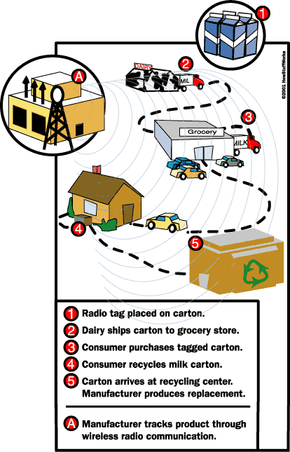Types of Tracking
Companies are finding location-tracking technologies ideal for better managing inventories or fleets of vehicles. Knowing the exact location of each piece of inventory helps to control the supply chain and saves money by not losing those assets that are in transit. Companies, such as retailers, must consider how to track inventory across a wide area, either country or state, and in a smaller area, such as the warehouse or store.
Wide-Area Tracking
On a large scale, companies must track their vehicle fleets across the country or the world. GPS is the ideal tracking technology for tracking over large areas. To do this, every vehicle needs to be equipped with a GPS receiver. As the vehicle crosses the country, the GPS satellites track the truck's position. With GPS, the operator can request positioning at anytime. However, GPS is limited in smaller areas or indoors.
Advertisement
Local-Area and Indoor Tracking
A good example of where GPS would not be suitable for tracking items is in a warehouse or hospitals. The accuracy provided by GPS is not sufficient for such a small scale. Consider all of the medical equipment, wheelchairs, gurneys and even patients that need to be tracked. GPS is not a practical or cost-effective solution.
For smaller areas, companies and healthcare organizations would likely use a network of RFID tags and readers to monitor the location of assets or inventory. A wireless LAN also would be more suitable. In such a system, each asset would be tagged with an RFID tag, and readers would be placed in strategic locations to be able to accurately read those tags within a matter of inches. A hospital worker would be able to find the exact room a wheelchair is located and retailers would be able to locate an item on any given shelf.
Another example of how this technology is already being deployed is in tracking children in some amusement parks. A child can wear a wristband with an embedded RFID tag. Park staff can track that tag through location receivers positioned around the park. One system in use at Legoland in Denmark even allows for the tag identification number to be registered with the parents' mobile phone.
Location tracking isn't limited to just allowing an organization to know where its assets are, these technologies also will help retailers and marketers find you to better target their key markets. In the next section you will learn about location-based services being deployed by wireless service providers.
